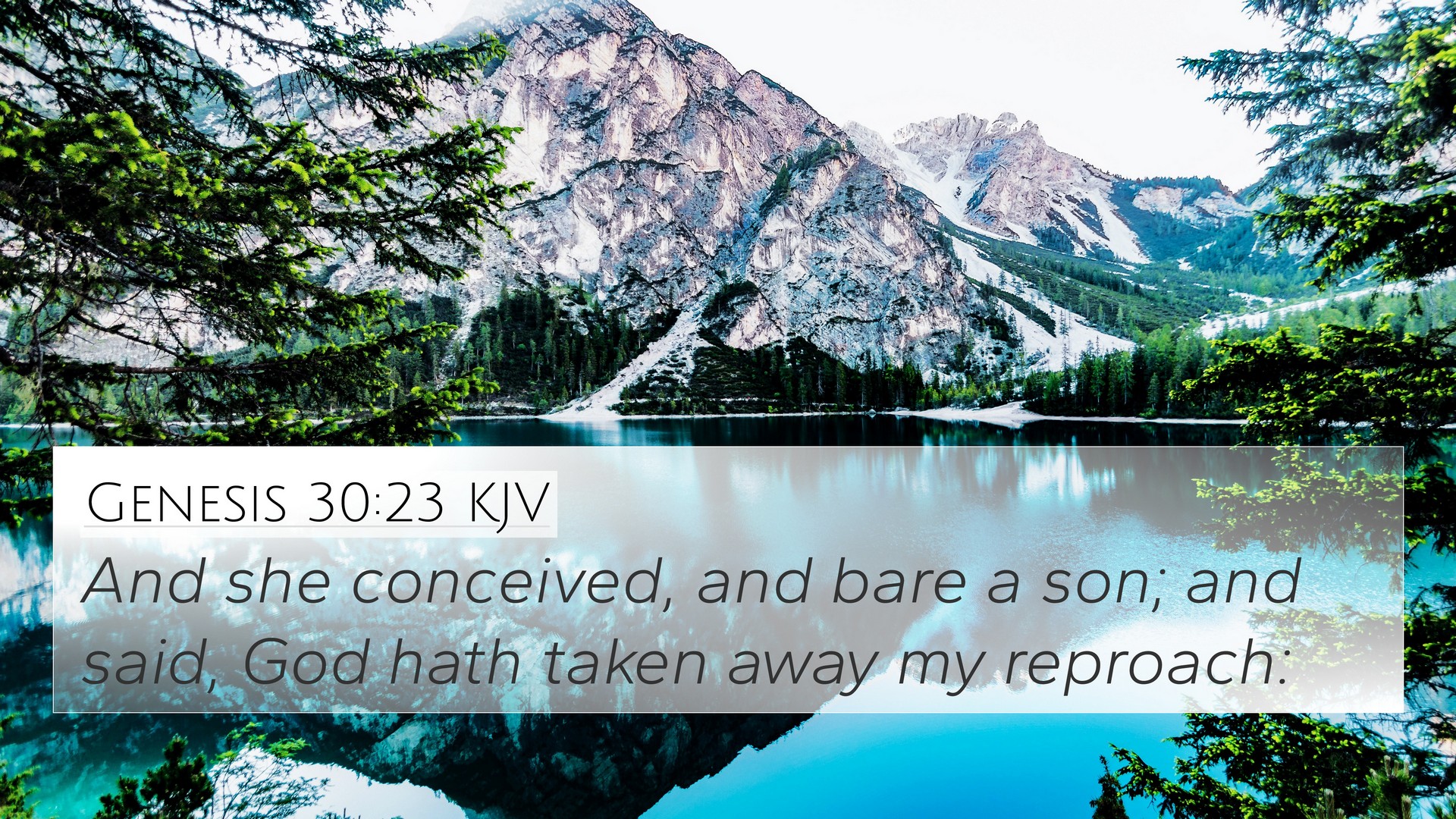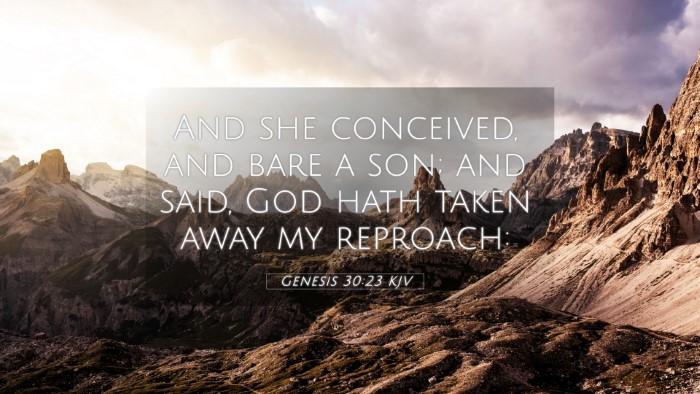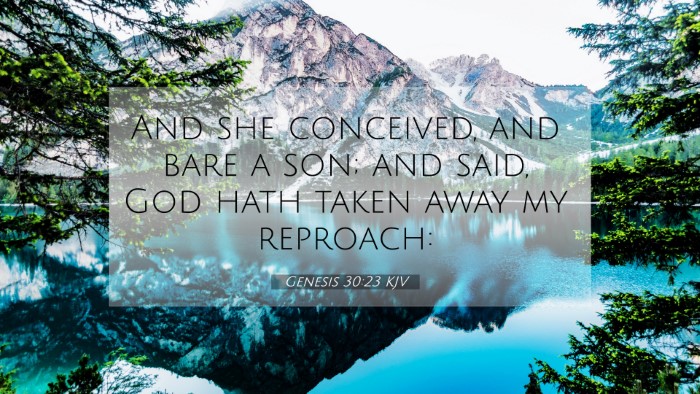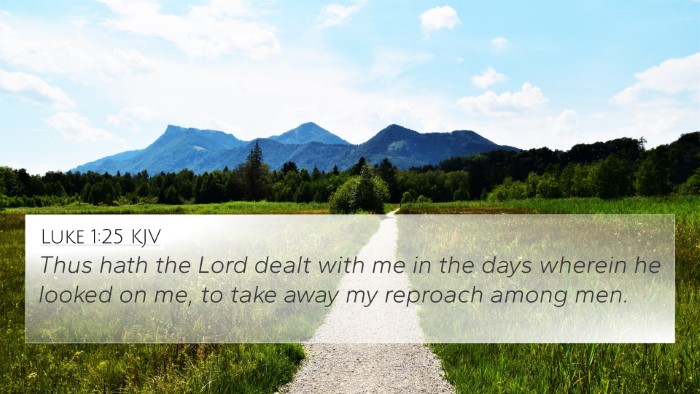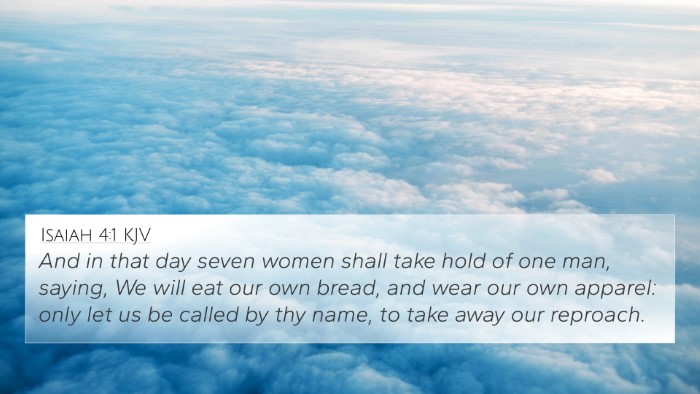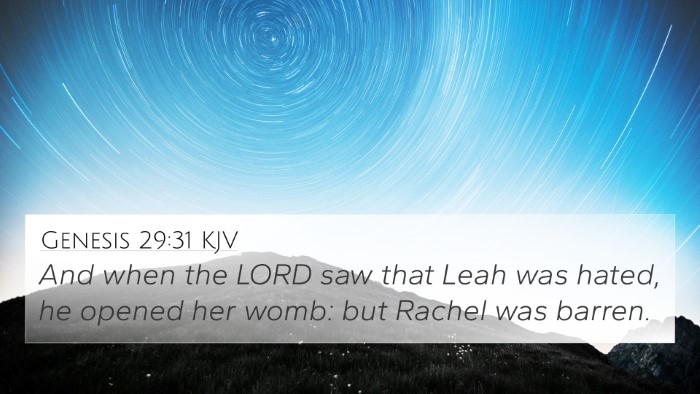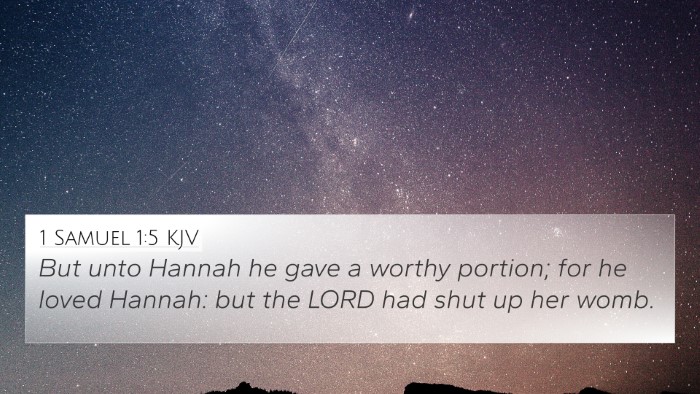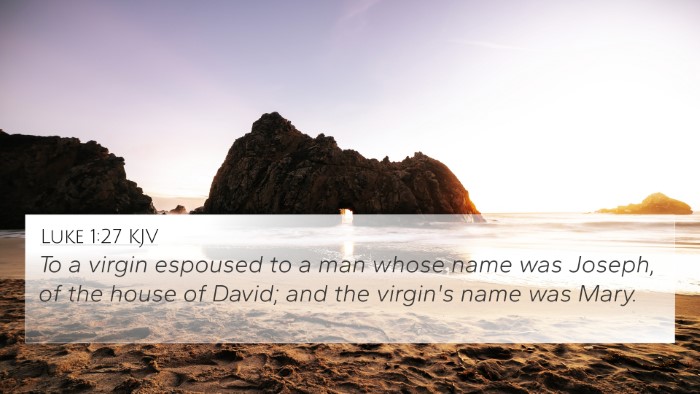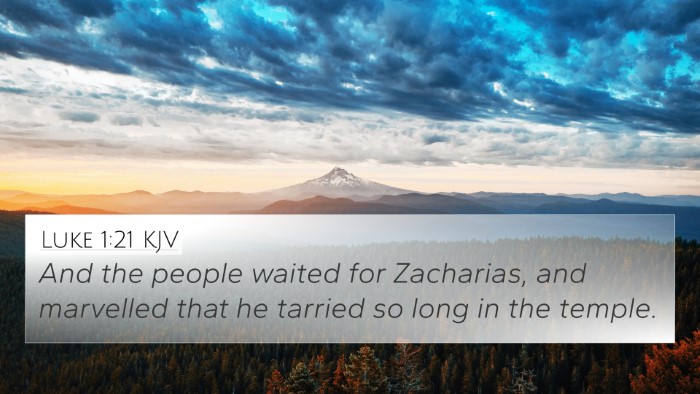Understanding Genesis 30:23
Verse: "And she conceived, and bare a son; and said, God hath taken away my reproach."
Summary of Meaning
This verse from Genesis 30:23 marks a significant moment in Rachel's life as she rejoices in the birth of her son, Joseph. The phrase "God hath taken away my reproach" indicates Rachel's feelings of shame and social stigma associated with her initial barrenness. Rachel's declaration highlights the themes of faith, divine intervention, and the importance of lineage in the biblical narrative.
Insights from Public Domain Commentaries
-
Matthew Henry:
Henry emphasizes the joy and relief Rachel feels as God blesses her with a child. He notes the societal implications of childbearing, especially for women in biblical times, and how having a child was considered a sign of God's favor. This event also marks a turning point for Rachel, showcasing God's mercy and grace.
-
Albert Barnes:
Barnes points out the theological significance of this birth, suggesting that Rachel's experience parallels the larger narrative of Israel's growth as a nation. He highlights how each child born to the patriarchs represented an expanding covenant community and the unfolding of God's promises to Abraham.
-
Adam Clarke:
Clarke notes the emotional and spiritual significance of Rachel's words. He discusses how her declaration serves as both praise to God and a personal testimony of salvation from reproach. Clarke also connects Rachel's experience to the broader theme of divine promise and fulfillment, reinforcing God's active role in the lives of His people.
Thematic Connections and Biblical Cross-References
Genesis 30:23 provides numerous thematic connections and can be cross-referenced with several other verses that explore similar themes of barrenness, divine intervention, and the joy of childbirth.
Key Cross-References
- Genesis 29:31: Discusses Leah's bearing of children when the Lord saw that Rachel was barren.
- 1 Samuel 1:20: Relates to Hannah's earnest prayer for a child and the joy that follows the fulfillment of her request.
- Luke 1:25: Elizabeth's joy at bearing John the Baptist, highlighting God's mercy in removing her disgrace.
- Psalm 113:9: Speaks of God giving the barren woman a home, underscoring blessings of motherhood.
- Isaiah 54:1: Encourages the barren to rejoice, anticipating the blessing of many children.
- Genesis 21:1-2: Sarah's similar experience of divine intervention in bearing Isaac after a period of barrenness.
- Luke 1:57-58: The birth of John the Baptist and the joy expressed by Elizabeth and her relatives.
Conclusion
Genesis 30:23 encapsulates a profound moment of deliverance and joy, marking Rachel's transition from shame to blessing. The insights from various commentaries enhance our understanding of this verse within the broader narrative of Scripture, revealing God's faithful work in the lives of His people. It invites readers to explore the connections between biblical texts, encouraging a deeper engagement with the story of God's covenant and His promises of restoration.
Exploring the Cross-Referencing System
Using tools for Bible cross-referencing can greatly enhance your study of Scripture. By examining the connections between different verses, one can build a comprehensive understanding of themes such as God's faithfulness, human struggles with barrenness, and the transformative power of prayer. Resources like a Bible concordance or a cross-reference Bible study guide can assist in identifying these links.
Practical Application for Bible Study
For those looking to deepen their understanding of Genesis 30:23 and its connections:
- Look for comparative studies that examine other stories of barrenness and eventual childbirth in the Bible.
- Explore how Angela's experience of motherhood resonated through generations, impacting the biblical narrative.
- Utilize a Bible reference resource to track themes of divine intervention throughout the Old and New Testaments.
Finding Cross-References
To effectively find cross-references in the Bible, consider these methods:
- Use a Bible cross-reference system that links related verses.
- Study thematic Bible verse connections, focusing on common elements in the narratives.
- Identify similarities between Old Testament accounts and New Testament fulfillments.
Final Thoughts
Understanding Genesis 30:23 enhances our appreciation for the intricate storytelling of the Bible. The verse not only narrates Rachel's personal journey but also contributes to the overarching narrative of God's relationship with Israel. By engaging in scriptural cross-referencing, readers can discover deeper insights into God's character and His redemptive plan for humanity.
